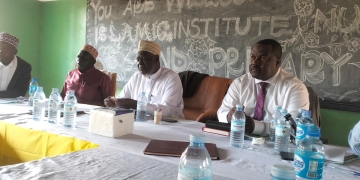
Africa’s reliance on imported food has come at a staggering cost: $68 billion annually. But African leaders gathering in Kampala, Uganda, see this as a wake-up call to unlock the continent’s vast agricultural potential.
John Mulimba, Uganda’s Minister of State for Foreign Affairs/Regional Affairs, told the gathering that Africa’s agricultural sector has the potential to drive economic transformation, but it needs significant investment. “Africa accounts for 65% of the world’s uncultivated arable land, yet we spend almost $68 billion annually on importing agricultural products,” Mulimba said.
Mulimba emphasized the need for increasing agricultural productivity and value addition. He proposed several key areas for investment, including rural infrastructure development, improved weather information and environmental control, and strengthening cooperatives. The minister also stressed the importance of a manufacturing sector that adds value to Africa’s primary products, creating jobs and driving economic transformation.
“Africa’s agricultural sector has the potential to drive economic growth, but we need to invest in it,” Mulimba said. “We need to add value to our products, create jobs and drive economic transformation.”

Dr. Monique Nsanzabaganwa, African Union Commission Deputy Chairperson, echoed Mulimba’s sentiments. “With 60% of the world’s uncultivated arable land, abundant water, diverse climates, and a dynamic youth population, Africa has the potential to become a global breadbasket,” she said.
However, Nsanzabaganwa noted that challenges such as limited financing, weak infrastructure, climate change, and slow adoption of modern technologies hinder progress. “It is imperative that we address these challenges head-on and work together to create a resilient and sustainable agrifood system,” she added.
The new CAADP Strategy and Action Plan aims to achieve several key objectives, including building resilient and sustainable agrifood systems, expanding intra-African trade, creating millions of jobs for youth and women, and feeding 2.5 billion Africans by 2050.

Frank K. Tumwebaze, Uganda’s Minister of Agriculture, emphasized the need for swift implementation of the plan. “We have little time remaining to achieve the targets we set ourselves in the African Union Agenda 2063,” he said. “It is only through execution of these ideas that we can have a meaningful impact on our people.”
Tumwebaze called on his colleagues to support the implementation of the plan by embedding it into national development plans. He also emphasized the importance of development partners’ interventions in supporting the plan’s implementation.
The summit is expected to conclude with the adoption of the Kampala Declaration, outlining the continent’s commitment to transforming its agricultural sector. The outcomes of the summit will feed into the Heads of State and Government summit on Saturday.










